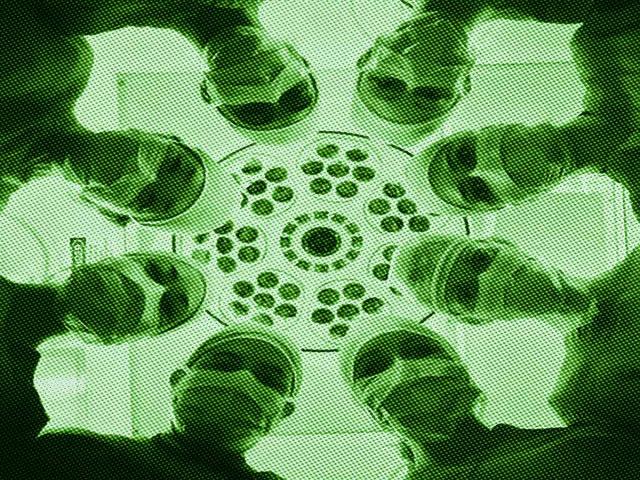Last Friday, June 30, I participated in a panel discussion at the 18th International Congress of Investigative Journalism by Abraji (Brazilian Association of Investigative Journalism), moderated by private journalist Claudia Colucci, Folha de São Paulo. The topic was “Post-pandemic Public Health: Why You Shouldn’t Abandon This Agenda?” , and my classmates, Renato Tasca, Consultant at the Institute for Health Policy Studies (IEPS) and Researcher at FGV-Saúde, and Evelyn Santos, Project Coordinator at Associação Umane, gave powerful and data-driven presentations, pointing out the centrality of SUS in Brazilian society and, therefore, Determine its enduring value as a subject of press coverage.
For my part, I did not give a presentation but a lecture; He did not bring hard data, but rather values and desires. And my focus was less on post-pandemic SUS and more on the post-pandemic state of science and health journalism. What he said was more or less than what is written below:
The COVID-19 pandemic has brought untold lessons to journalistic coverage of public health issues, some of which have been hard-won—for example, the need to prioritize accurate and responsible communication of the best established medical facts and best scientific recommendations, at the expense of the classic journalistic habit of seeking to preserve A cosmetic aura of “pluralism” or “neutrality”, represented in favoring the advertising over the real. When it became clear that protesting routine “otherness” on issues like vaccines or social distancing would cost lives, a wave of sobriety swept the profession — with a few unfortunate exceptions.
Yet he prevailed in the heat of battle, and yet this awareness of a public responsibility that rises above the usual trappings of practice seems already to be fading. News and reports supporting “fashionable” treatments and medicines, based solely on the words of supposedly satisfied patients and health professionals willing to sell services, multiply again. Epidemiological studies of dubious or still preliminary quality are augmented to increase the reader’s paranoia with the incidents of modern life. Alleged treatments and potential contaminants tested on mice have only been reported with fanfare as new treatments or imminent threats.
The critical role of good scientific evidence, and the need to separate the wheat from the chaff when bringing laboratory results to public attention, which have been brought to the fore during the pandemic, is increasingly being marginalized. We are back to “business as usual”.
It would be unfortunate if the only truly lasting lesson from COVID -19 is awareness of the importance, exclusion, and value of SUS. Because without a clear view of the centrality of good scientific evidence in policy formulation and in the allocation of public health resources, any defense of SUS will be incomplete and incomplete.
The evidence issue speaks directly to the incorporation of technologies, practices, procedures and medicines into the system, a process that has been abused during the pandemic – with the Ministry of Health issuing, in March and then May 2020, guidance on the use of chloroquine and other elements of the notorious “early treatment” in public health. But long before that, it has already been shown to be extremely vulnerable to capture by political and economic interests that interfere with impartial analysis of the evidence of what is really best for the Brazilian people.
Since this is the Investigative Journalism Conference, I would suggest the Department of Health’s National Plan for Integrative and Complementary Practices, PNPIC, as a fertile—and unexplored—ground for investigating the role of these interests in shaping health. policies. The plan was made under the pretense of incorporating folk knowledge and practices into a system that, despite the lack of good evidence, would have some cultural or historical weight within Brazilian society. This is questionable evidence, and I, personally, and the Instituto Questão de Ciência, of which I am a member and founder, are loyal critics.
But that is Separate discussion. Even assuming, by hypothesis, that the guideline is correct: what is common, cultural or historical, in relation to Brazilian realities, in practices such as ozone therapy, chiropractic or family constellation, all of which are included in the core of the PNPIC?
Ozone therapy consists of introducing toxic, corrosive and highly reactive ozone gas, ozone, into the human body. The extremely aggressive ozone can be used to sterilize equipment and disinfect surfaces or even external wounds. There is no reliable evidence that its internal application is beneficial for any condition, or even safe. It is a technological intervention: the gas is generated by an electrical device. There is nothing “traditional” about it. Even the Federal Board of Medicine, which has greatly appreciated chloroquine and early treatment, doesn’t endorse its use, reserving the treatment for experimental studies only. However, not only is ozone therapy part of SUS, through the PNPIC, but there is also a bill pending in the Senate, which aims to allow its indiscriminate use, outside of experimental conditions, throughout the national territory.
On the other hand, chiropractic can claim the title of “traditional” – if PNPIC is a US government program. Created in that country at the end of the 19th century, this practice, often consisting of violent and dangerous manipulation of the spine, has taken root in American culture, but in Brazil it is quite an imported product. Even in her home country, she is opposed by those who value respect for scientific evidence in health promotion.
The family constellation, which is in the SUS, was created by the work and grace of the PNPIC, which has been colonizing the judiciary under the name of statutory law, in Germany for decades – its founder died in 2019 – and therefore, it is difficult to find reasons to consider it “traditional” or “cultural” or “national”. It is based on pseudoscientific notions of reason and conscience, requires a kind of transmission of ideas and even contact with the dead, and advocates a violent and sexist patriarchal ideology: the victims of this practice have already appeared several times in the press.
It is necessary not only not to lose sight of the lesson brought by the pandemic on the importance of respecting scientific evidence in health – and to apply it more and more from now on – but also to use it as a lens to assess what has been done in the past.
When talking about public health advocacy in general, and SUS in particular, the main point made is usually the lack of funding in the system. There are good reasons for this, but there is also a certain comfort – it’s easy and common to ask for more money for health.
I would like to leave here the suggestion that it is also important, even necessary, to pay attention to the issue of respect for evidence in the formulation of health policies, in the incorporation of practices and products, and to return to the subject of investigation. The press, to lobbyists and interests that burden public health with pseudoscientific, unsafe and ineffective treatments, treatments that then use the seal of a regime beloved and respected by the Brazilian people to legitimize themselves, for very good reasons.
As a Brazilian citizen and consumer of good press, I would like to know the real story, the deep story, of the integration of ozone therapy, family constellation, chiropractic and many other practices, said to be complementary and complementary, to our unified health system.
Carlos Orci is a journalist and editor-in-chief of Revista Questão de Ciência, author of “O Livro dos Milagres” (Editora da Unesp), “O Livro da Astrologia” (KDP), and “Negacionismo” (Editora de Cultura) and co-author of “Pure Picaretagem” (Leya ), “Science in Daily Life” (Editora Contexto), the work that won the Jabuti Prize, and “Against Reality” (Papirus 7 Mares)

“Hardcore beer fanatic. Falls down a lot. Professional coffee fan. Music ninja.”







More Stories
With science and dialogue, Otinga State Park celebrates 31 years
Money Dose: The Science Behind the ‘No’ That Doesn’t Come Out Why is Saying No So Hard?
Wild orangutans use the plant to heal wounds